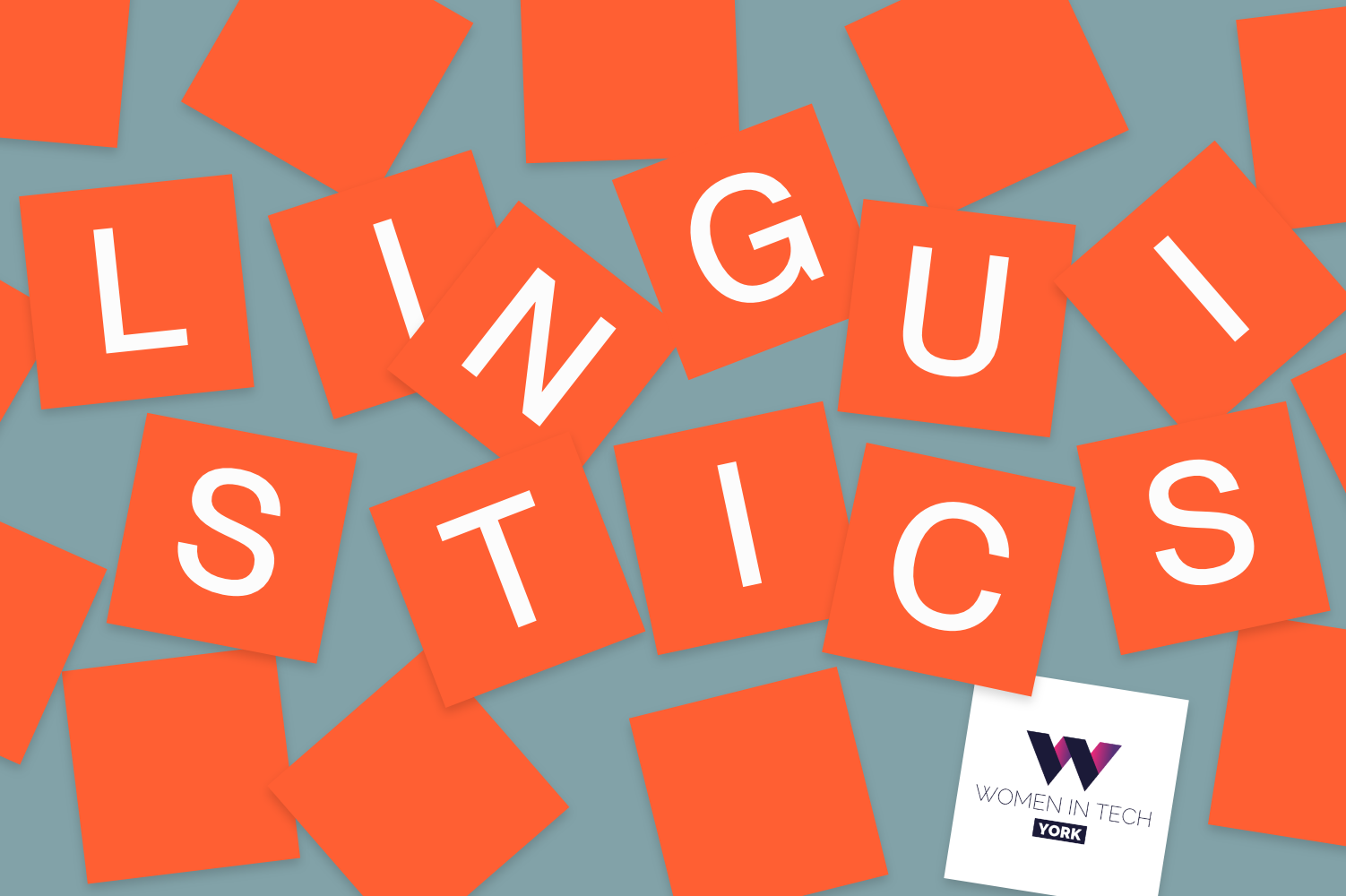
CYB at Women in Tech: using linguistics in digital
When I first attended Women in Tech I felt like an imposter. I was working as a user researcher within the tech industry and I just didn’t feel very ‘technical’ - I couldn’t code, I didn’t test, and I came from a social science background and not STEM. That’s exactly why I needed to attend Women in Tech.
Women in Tech is inclusive of all, meaning that the space is opened up to not just women, but everyone with an interest in tech - it does not discriminate against anyone. This is so important when we think about how to create allies, space for networking and just a general awareness of women in tech and their voices. The space helps create diversity in the tech industry.
Another thing I realised was that I didn’t need to have a STEM background - anyone who is interested in learning about tech and career opportunities can come along. After attending a few events and meetings over the years I eventually plucked up the courage to put myself forward for a talk. I chose to speak about linguistics. With my confidence and understanding of how linguistics can be used in tech, I had openly spoken about this in my interview with Caution Your Blast Ltd (CYB) - so why not share that expertise with others?
For a while now I’ve noticed a lack of integration of a few select social sciences and the tech industry, e.g linguistics in the digital context. Sociolinguistics, computational linguistics, syntax and phonetics are just a few subsets of linguistics that are needed within technology - how do you think Alexa was created to understand our accents and dialects? So I decided that if there’s a gap, then why not go ahead and fill that space?
Working in tech made me realise how transferable my skills and knowledge around language are and how needed they are for the industry - whether it’s using modal auxiliary verbs to shape up requirements (MoSCoW model) or using sociolinguistics to actively remove bias and enhance natural language processing (NLP).
Since working as a user researcher at CYB I have been able to continuously use my linguistic skills in a research setting. I’ve been thinking about how typology and semiotics interact with accessibility, semantics and pragmatics of users’ naming conventions and how it can reflect their mental models. Also, how to extract meaning from a person's pause ( phonetics and phonology), while also opening up my knowledge and networks around NLP with my colleagues.
So I thought it was time to share this knowledge. My talk at Women in Tech was titled ‘Using Linguistics to aid your role or business’. At the event in January, I discussed top-down bottom-up processing, semiotics & signifiers, and all things corpus linguistics. Linguistics & language, already a powerful tool and our greatest collective achievement as a species, is a tool that can be harnessed by anyone regardless of their job title. It doesn’t matter whether you’re a developer, tester, or service designer, we all use the same language tool kit each and every day. Like Women in Tech, linguistics does not exclude and it felt like the perfect pairing, and one that the tech industry should welcome.
It was incredible to see how well received and celebrated the talk was. It created an array of questions around ‘how do I remove bias within NLP?’, ‘how can I hire more women for my company?’, ‘why do some people speak faster than others? (articulation rate)’ and ‘how do we advise our company to hire a linguist?’. My favourite discussion came from a content designer who advised me that she attended because of our similar degrees but “didn’t feel very techy” - deja vu.
For any woman who doesn’t have a STEM background, doesn’t code or do any of those jobs they perceive to be uber technical - don’t worry. Women in Tech is a place for you. It’s never too late to show an interest, to share your skills or even just network. The space is what you make and bring to it and it becomes richer with inclusivity and diversity.
I’m so grateful to have been given the opportunity to speak about my knowledge and expertise on linguistics and to bring that to an industry where sometimes we think that it might not fit - because it does.